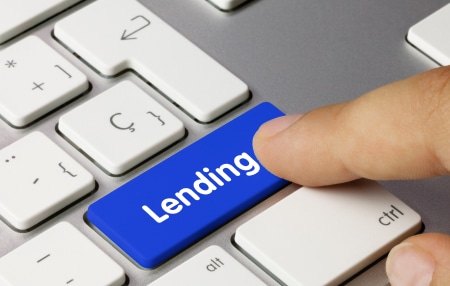
Before loaning you money or offering credit, lenders should complete checks to ensure you’re able to afford repayments. If they don’t, this is known as irresponsible lending and can lead to significant loan and credit card debt for the customer. Read on for more information about the signs of irresponsible lending and what to do if you are a victim of it.
What is responsible lending?
Before we look at irresponsible lending in detail, let’s define the practices the lender should be following, known as responsible lending. This is when a lender completes an affordability assessment which determines whether you can afford to repay the money.
According to the Financial Conduct Authority (FCA), during this assessment, the lender must take into account the customer’s creditworthiness as well as the affordability of the credit agreement. The lender should take factors such as the customer’s credit history, their existing and future financial commitments, the cost of the credit and the vulnerability of the customer.
A responsible lender should never approve you for a loan or offer credit if they know it could result in financial difficulty for you. They should also explain the terms and conditions of the agreement clearly, and offer support if you’re struggling to keep up with payments.
How does irresponsible lending differ?
Irresponsible lending is when these affordability checks and assessments aren’t completed properly or at all, resulting in the lender offering a loan or credit which the customer realistically can’t afford to pay back. This often leads to further debt with fees for missed payments and high interest rates, impacting on the victim’s financial health.
For example, if you apply for a mortgage while on a Debt Management Plan (DMP) and the lender offers mortgage repayment rates the customer can’t realistically afford to repay each month, this is an irresponsible lending practice. It could lead to you not being able to keep up with monthly payments alongside your other debt obligations. It’s therefore a good idea to look out for warning signs of irresponsible lending.
How do I know if I’m a victim of irresponsible lending?
As a borrower, it can be difficult if the lender is taking advantage of you. However, there are a few things that can help you spot irresponsible lending:
- Excessive fees – fees typically range from 0% to 5% of the total amount so if they are over 5%, this could be an indicator of irresponsible lending.
- Balloon payments – this is a common hidden cost where borrowers pay a larger fee at the end of the contract. Irresponsible lenders might not mention this to you, instead promising low monthly costs.
- Unnecessary extras – lenders might keep adding extra onto the product, increasing the amount of fees you need to pay.
- The only lender willing to give you credit – if no other lenders are offering you credit and one seems eager to do so, it could be a warning sign. Often, if it sounds too good to be true, it probably is.
- Short grace periods – credit cards normally offer a grace period where interest isn’t added, giving you more time to pay the balance. These periods are usually around 21 to 28 days so if there’s a very short grace period, lenders may just be looking to increase the amount you owe them.
- No credit check details – responsible lenders usually check your credit to determine how much of a risk you are as a borrower. To verify if your lender is responsible, you could ask for a copy of your results.
- Not recognised by the FCA – it’s a good idea to only borrow from FCA-approved lenders.
How to prove irresponsible lending
If you have been a victim of irresponsible lending, it’s a good idea to gather as much evidence as you can of any of the practices mentioned above. You essentially want to prove that the lender didn’t carry out the affordability checks necessary before lending you the money. This could include a copy of your credit report to show your financial situation when given the loan.
You can also use bank statements and payslips to prove that your monthly income isn’t enough to cover the cost of your loan repayment as well as other debts. Irresponsible lenders can sometimes be persistent, pressuring you to pay even if you’ve explained a change in your financial circumstances. They may also tell you that they’ve completed the necessary checks when they haven’t. In this case, it’s helpful to have copies of communication between you and the lender.
You can also prove the impact of your loan on your financial wellbeing. This could include bank statements or evidence of debt management solutions you’ve entered into to help you cover monthly credit payments.
Can I claim for irresponsible lending?
Yes, you can. The first step is to speak to the lender who may be able to resolve the issue directly with you, perhaps reducing interest or lowering the amount you have to pay back. If they don’t respond to you within eight weeks or you’re not satisfied with their response, you can make a complaint to the Financial Ombudsman Service (FOS).
The FOS will investigate your complaint, taking any evidence you have into account. They’ll also look at whether your lender carried out reasonable checks before offering the loan, considering the amount you borrowed, how much your payments were and what your lender knew about your financial position.
If the FOS decides that the lender was irresponsible, they’ll ask them to put it right. This can vary depending on your circumstances but generally if you fully repaid the loan, they’ll ask the lender to refund interest and charges you paid with 8% simple interest and remove any negative impact from your credit file.
If there’s still an outstanding balance, the FOS may request the lender remove all interest and charges, deduct payments already made or refund any extra you’ve paid with 8% simple interest. They may also ask the lender to pay compensation if you experienced inconvenience or distress.
If irresponsible lending has put you in a difficult financial position and you are struggling with debt, there are a number of options available to you.

To discover more about how to manage your debt and to receive free debt advice, you can visit www.moneyhelper.org.uk.

